
Heralding a new era of public health research and teaching at Flinders, the College of Medicine and Public Health is welcoming six health experts to the new Discipline of Population Health.
The new discipline – reflecting the diversity of Flinders University’s broader public health expertise and Aboriginal and Torres Strait Islander academics – exemplifies the stronger integration that is being achieved within the Public Health Discipline Group.
Professor Billie Bonevski, Discipline Group Lead of Public Health, says the new discipline will support an uplift in education and research focused on national and global priorities, development of the next generation of leading academics, and contribute to better health and wellbeing, particularly for Aboriginal and Torres Strait Islander people and communities.
“We’re looking to change the composition and staffing of public health to strategically grow our education and research with a particular focus on preventive health, disease prevention and health equity. It will strengthen our capacity in support of our new flagship Bachelor of Public Health degree to help attract and retain students, and build the public health workforce,” says Professor Bonevski.
“Flinders is positioning this discipline to foster a new generation of growth. We are recognising that the health and wellbeing of Aboriginal and Torres Strait Islander people cannot be improved by goodwill alone and that there are distinct health priorities that require not just clinical expertise but a unique cultural focus. It encompasses emotional, cultural and social wellbeing in addition to physical wellness. This is a dimension we wish to reinforce in our public health discipline, by bringing in that knowledge with Aboriginal and Torres Strait Islander staff, who in turn deliver research knowledge back to communities.”
Professor Ray Mahoney
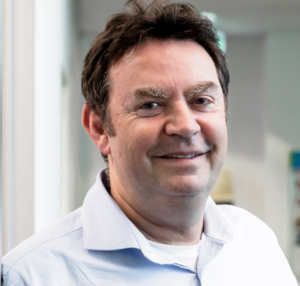
Professor Ray Mahoney, a descendant of the Bidjara people of Central West Queensland, joins Flinders University from the Australian e Health Research Centre (AEHRC) at CSIRO.
Professor Mahoney is passionate about leading research into culturally safe care, having investigated the patient journey for Indigenous cardiac care across rural and remote settings, the accuracy of Indigenous status identification in the Queensland Health patient information system and the interaction of racism in health care.
As a member of national cardiovascular research groups and the Ethics Committee for the Australian Institute of Health and Welfare, Professor Mahoney leads research projects focusing on culturally safe eHealth for Aboriginal and Torres Strait Islander people and is undertaking research in diabetes, cardiovascular disease, dementia, food security and social determinants of health.
Associate Professor Annabelle Wilson
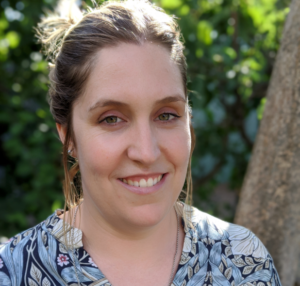
A dietitian who has worked in Aboriginal and Torres Strait Islander health and food systems research, Associate Professor Annabelle Wilson is guided by a desire to make a difference to people’s lives through research, education and collaboration.
Associate Professor Wilson strives to deliver research and education outcomes that address social determinants of health and health inequities in multiple areas, including Aboriginal and Torres Strait Islander health. In her new position, she wants want to explore how implementation science can be used to maximise the effectiveness of implementation (relevant to research and education) for diverse groups.
Dr Andrea McKivett
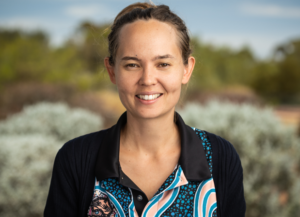
Dr Andrea McKivett is a Gija health academic from the Kimberley in Western Australia. After studying an undergraduate degree in medicine that primed her interest in health equity research and education, Dr McKivett completed a Masters in Aboriginal health at the University of Western Australia, focusing on clinical decision-making and practitioner engagement in Aboriginal health.
Having recently submitted her PhD thesis exploring communication skills curricula in Aboriginal health professional education, Dr McKivett is excited to take up her new position at Flinders University and be part of the education team contributing to a skilled and capable public health workforce, ready for contemporary health challenges. She also looks forward to extending her research activities in Aboriginal health professional education with a focus on communication skills, effective knowledge translation and inclusive governance.
Dr Jacqueline Stephens
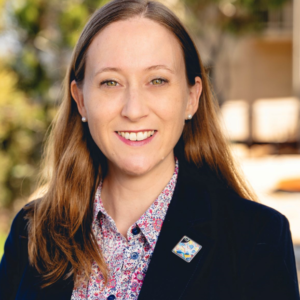
As the Senior Lecturer in Public Health Regulatory Science, Dr Jacqueline Stephens is looking forward to contributing to the ongoing development of a vibrant and innovative public health teaching program that prepares students for the demands of working in public health.
Building on her experience as an epidemiologist and public health researcher, Dr Stephens is looking forward to working with University colleagues and the wider community to develop strategies that will eliminate healthcare inequity. She is particularly keen to address factors influencing access to healthcare and health equity for Aboriginal and Torres Strait Islander children and youths.
Dr Zhaoli Dai-Keller

Dr Zhaoli Dai-Keller is a nutrition epidemiologist with a primary research interest in studying lifestyles, medication use and healthcare quality indicators in healthy ageing, and disease prevention across populations from different ethnic and cultural backgrounds. She also evaluates development processes of public health and clinical guidelines, focusing on evidence rigour, commercial determinants, equity and feasibility of guideline recommendations. Her work has been published in multiple top-tier medical journals, including the BMJ, Annals of Rheumatic Diseases and Plos Medicine.
As a passionate public health researcher and educator, Dr. Dai-Keller is excited to join the College of Medicine and Public Health at Flinders University. Her goal is to train the next generation of public health practitioners and researchers, and use novel and sound methods to provide the best evidence to inform public health and clinical practices to reduce disease burden.
Dr Kate Fairweather
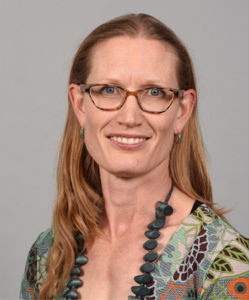
With a background in psychology and mental health epidemiology, Dr Kate Fairweather’s research concentrates on health disparities – especially mental wellbeing and prevention of suicidal behaviour. Her methods of investigation range from analytic characterisation of populations to intervention designs and health translation.
Dr Fairweather’s current research focuses addressing smoking among people with intellectual disability; assisting culturally and linguistically diverse communities to access tailored mental health programs; chronic condition management principles that support cardiovascular health among people with severe mental illness; and improving the mental wellbeing of Aboriginal communities in urban Adelaide.

